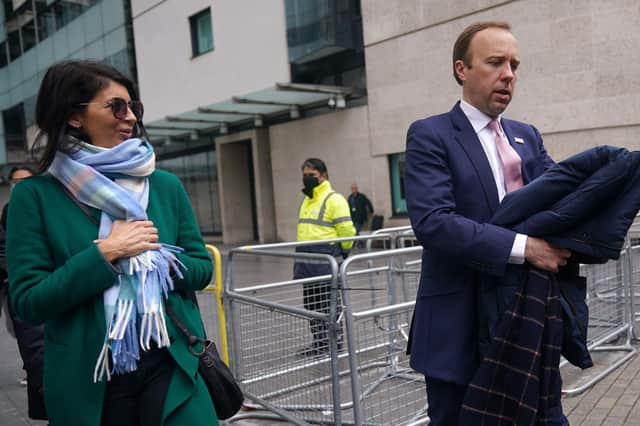Official Secrets Act reform could see journalists treated like 'foreign spies' and jailed for 14 years – Helen Martin


Freedom of the Press was a democratic and moral policy, and some of the material the Fourth Estate delivered to the public was showcasing the dark and suspicious side of governments and political parties.
When I started in journalism 50 years ago, every newspaper I worked for from then until a decade ago had one major priority: carrying out investigations and delivering criticism of anything which councils, police, governments and political parties did which would not be approved of by the public, or would cause them harm.
Advertisement
Hide AdAdvertisement
Hide AdWithout journalism, who else was dedicated to expose anything negative from parliaments or other authorities and avoid them conning the public?
Most newspapers support for specific parties, but back in the day they would also criticise. Unfortunately, today, some newspapers and television companies refuse to cover the “bad” moves of the parties or governments for which they campaign.
But recently, even the Tory Daily Mail objected to reforms being conducted by the Home Office to the Official Secrets Act which could have journalists jailed from two to 14 years if they leak information or make “unauthorised disclosures”.
Several newspapers and some experts believe Matt Hancock’s affair and snogging caught on government security cameras would have been covered by these reforms if they had already been established.
Advertisement
Hide AdAdvertisement
Hide AdEven Piers Morgan said that proposals to jail journalists for embarrassing the government was “outrageous but unsurprising” and would treat journalists like “foreign spies”. The National Union of Journalists, the Press Gazette, some law and legal bodies and others are adamantly opposed to the reform.
There is a question over the whole exercise. Is it absolutely correct to keep official and national security information undercover, if its disclosure could harm the UK and its citizens? Of course.
But is there a reason to limit the revelations from whistle-blowers, from “leaked” documents and anything the government is holding back which exposes their wrongdoing?
We have now had several exposures about the government including one about Boris Johnson resisting installing tougher Covid rules because, according to Dominic Cummings, he said “the people who are dying are essentially all over 80”.
Advertisement
Hide AdAdvertisement
Hide AdPriti Patel is also leading a bill that allows what she calls “reasonable force” to stop migrants in little boats reaching the UK and up to four years’ jail for those who escape from war and land here; and Liz Truss has claimed that Scottish businesses are “excited” about Brexit. These are minor, offensive, disgusting things the UK government is happy to share with the public.
But what government plans, decisions, and secrets – discovered by and revealed by journalists – will lead to 14 years in prison?
Here are two expert quotes. Former Guardian security editor Richard Norton Taylor describes it as “posing far-reaching threats to the media and the public’s right to know”. And Independent columnist Patrick Cockburn says that if the government proposals are implemented “Britain will be well on the way to joining those countries where the disclosure of any information damaging to the government is punishable”.
The UK is no longer among leading, democratic nations in the world. Our government is revolting.
A message from the Editor:
Thank you for reading this article. We're more reliant on your support than ever as the shift in consumer habits brought about by coronavirus impacts our advertisers.
If you haven't already, please consider supporting our trusted, fact-checked journalism by taking out a digital subscription.
Comment Guidelines
National World encourages reader discussion on our stories. User feedback, insights and back-and-forth exchanges add a rich layer of context to reporting. Please review our Community Guidelines before commenting.
